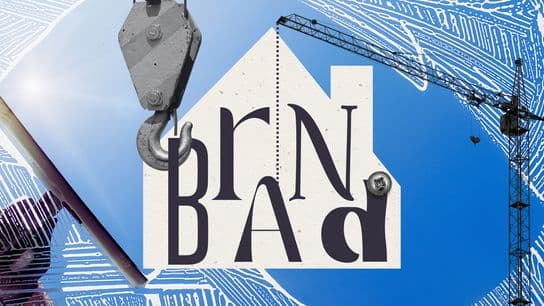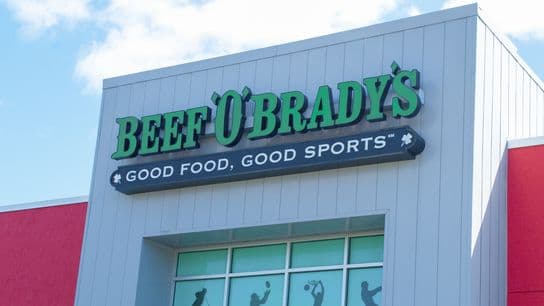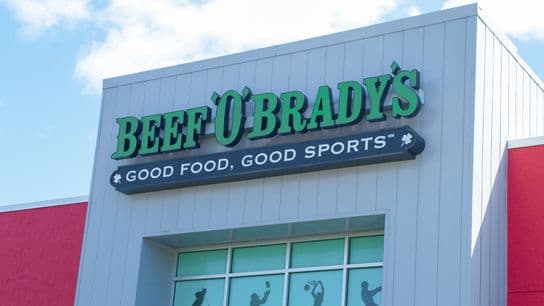Sean Fitzgerald, 1851's Franchising expert with 10 Reasons Why Franchisees Fail
1815 speaks with franchise professionals Sean Fitzgerald & Terese McGroaty of FranNet to discuss where unhappy franchisees struggle to get it right
There are many reasons why people buy into a franchise business. Arguably the top reason is for the security that their business will succeed and be profitable. Unfortunately, there are a few instances where franchisees end up failing. The reasons behind the failure is usually preventable and almost always fall into the same situations. 1815 spoke with Terese McGroarty, Franchise Specialist with FranNet, and Sean Fitzgerald, Chief Development Strategist at No Limit Agency* to discuss the top 10 reasons franchisees fail.
1. Franchisees are undercapitalized – Item Seven of the FDD showcases the investment level of the brand. It mentions everything that a franchisee will need to start their business and three months of working capital. While this is a good representation of what potential franchisees should set aside, it shouldn’t be the only working capital that they have.
“When starting a business, they need to look not only at the price of the business, but also expenses for their own personal life,” mentioned McGroarty. “You should have enough money to live for the next year and the ability to run your business for the next three to six months.”
2. Franchisees don’t follow the franchise model— This mistake seems the oddest of them all because the whole reason behind buying a franchise is to buy into the proven model. Yet, some people veer away from that model and it causes their company to fail.
“Many people don’t understand what franchising is,” said Fitzgerald. “They think it is just a way to use the franchisor’s name and logo, but it is so much more.”
3. Underspend on Marketing— All franchisors require a minimum amount of local marketing but many franchisees will just relay on national marketing and publicity to help their locations, which won’t always be enough. If you look at the majority of franchisees who fail, most of them underspend on marketing.
“It is still the franchisees role and responsibility to drive traffic and customers,” noted Fitzgerald. “If you underspend on local marketing, it will have an effect on how many customers you have.”
4. Poor leadership- Almost every franchise brand is reliant on their employees. Either the employees are the face of the brand or are actually the product sold (for service franchises), having good employees is critical. In order to have good employees you need to have a good leader, which in this case is the franchisee.
“Many franchisees get into the business because they have a hobby for the service or product,” stated McGroarty. “It is important that the franchisee leaves most the work to their employees and they actually spend time running the business.”
5. Bad real estate selection— For those franchises that are brick and mortar, finding the right real estate is key to success for the business. If you have a great business but it is in a bad location, it can kill the business.
“I have seen many franchisees try to go the cheap route on real estate and it is the reason they fail,” said Fitzgerald. “Good real estate is specific to the brand so it is important to listen to the advice your franchisor gives you. They have helped many franchisees find real estate prior to you so they know the key aspects that will help the business grow.”
6. Franchisee doesn’t have a passion for the brand— Ideally, if you have enough capital, have strong business/management skills and follow the franchise system, owning a successful franchise company should be simple. However, there is much more to being a successful franchisee. You really need a passion and hard-work ethic to do well, especially in the beginning.
“Many people think that they can retire into a franchise company to continue making money but not having to put that much effort into it,” said Fitzgerald. “While a company might get to that point, in the beginning it is anything but an easy ride. You need to have a lot of sweat equity, dedication and passion to building a business especially when you first start out.”
7. The wrong franchise fit— A lot of this issue has to do with the intense business of franchise sales. Franchise sales and development individuals are constantly being pressured to seal more and more deals as soon as possible. While these deals might make money for the franchisor initially, it can actually hurt them in the long run if they are not taking the time to make sure that the people they sign on are good candidates and fit the business.
“It is important that potential franchisees find a brand that really fits their skill set and preferred business structure more than anything,” notes Fitzgerald. “If you have been working for corporate America all your life and love the structure, you might not want to be working with hourly employees all day.”
8. Franchisees get into the “Death Spiral”— In the world of small business, there is a phrase that describes what business owners do when their business is going south and they are trying to make quick changes to make things better, a “Death Spiral.” Business owners will decide to cut back on spending money. They cut marketing expenses, decrease number of employees and basically take the cheap option for every decision.
“Rather than focusing on the problem that is causing your business to do worse, you cut back on what is making your business great, which will ultimately kill your company,” stated Fitzgerald.
9. Franchisee didn’t research the company and business enough – The research process before signing on with a franchise is possibly the most important part all. That doesn’t simply mean Googling about the company, but actually speaking with current franchisees, the corporate team, business owners in your town and other investment stakeholders. This business will become your life, so you need to fully understand what the requirements will be and if you are up for the challenge.
“I always suggest that potential franchisees talk with current franchisees of the company that have been with the business for one, five and ten years to fully understand the longevity needs of the business,” said McGroarty. “This way they can also see franchisees who are failing, doing okay and who are very successful.”
10. Family illness or tragedy— Not that this is the case every time, but a big loss in someone’s lives can unfortunately lead to stress, distraction and ultimate failure for the company.
“Issues in one’s family, like cancer, death, addiction or suicide, not only takes a toll on the franchisee’s mental stability but also their time,” said McGroarty. “While this shouldn’t stop anyone from getting involved with franchising, it is something to consider and potentially have a plan ready just in case something happens.”
*This brand is a paid partner of 1851 Franchise. For more information on paid partnerships please click here.









